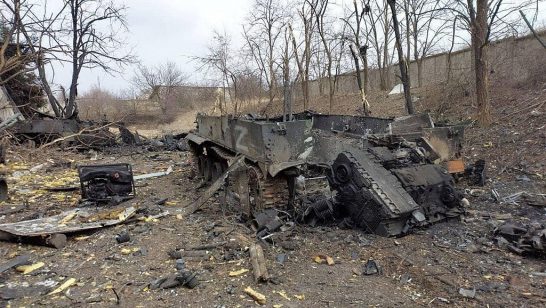
These remarks were delivered on 16th August at the ELN launch event for our new project, “Reinforcing the multilateral nuclear regime in times of duress”. Given that the NPT Review Conference (RevCon) ended without an agreement on a consensus outcome document, Kobieracki’s comment that “diplomatic success should not be measured by the number and volume of documents agreed and adopted” proved timely. His analysis focuses more on concrete steps that need to be taken to reinforce and implement the NPT system.
A functional NPT regime is not only one of the international security pillars today, it will also be one of the indispensable elements for the future international security order. In August, the ELN launched a new project on the sidelines of the tenth Non-Proliferation Treaty Review Conference intended to assist in keeping the NPT functional. The importance of the project is threefold.
First, given the current deep international security crisis caused by the Russian war of aggression against Ukraine, and the overall geopolitical earthquake this has caused, every effort is needed and welcome to maintain multilateral co-operative mechanisms. The NPT is one of them.
Second, today the NPT can’t be left solely in the hands of diplomats nor in the hands of only politicians. It will require a more ambitious and non-routine approach than diplomats are likely to offer, while at the same time should not be sacrificed or compromised by political leaders for the sake of ‘more urgent’ political objectives.
Third, the ELN has managed to combine three pillars – a practical approach, a success-oriented attitude, and an educational effort – into one project. It is thus ambitious, realistic, and promising.
The importance of the NPT at this moment is fundamental in that if it is not saved today, it would be virtually impossible to rebuild it in years to come due to the lack of confidence and the many divergent – and quite often mutually contradictory – perspectives among states, both nuclear and non-nuclear. Saving the NPT does not mean leaving it as it is, or not modernising it. Quite the contrary, the NPT regime needs adjustments in order for it to be flexible enough to survive in this current climate. The ELN project should help to identify such adjustments.
Saving the NPT does not mean leaving it as it is. Adam Kobieracki
The project envisages three workstreams – working on practical and relevant initiatives, finding pathways to diplomatic success, and preparing a new generation of arms controllers. The right balance will have to be kept between these both ambitious and realistic approaches. Neither grand scenarios nor pure language corrections to existing documents will necessarily be helpful. The project should allow the expert community and young generation leaders to introduce their views and ideas into the political and diplomatic negotiation process.
Looking at pathways to diplomatic success, this will require first an understanding of how to define success nowadays. I believe success should be understood as the NPT regime’s survival as a functional instrument until a time of future international security regime negotiation, if and when this is possible. It is also worth remembering that diplomatic success should not be measured by the number and volume of documents agreed and adopted. It is not the time for bad compromises or hiding issues behind elegant phrases.
Diplomatic success should not be measured by the number and volume of documents agreed and adopted. Adam Kobieracki
What we need is to educate and train a new generation of arms controllers. Future arms control, starting with nuclear arms control, will be different from what we knew in the past. This is due to new weapon technologies, new verification instruments, new geopolitics, an enormous lack of trust among states, breaches of international law, and the principle “pacta sund servanda” (“agreements must be kept”). From this perspective, retired arms controllers may only be of limited assistance to the new generation. They can share their experience and knowledge on how to conduct arms control as a negotiation process in general – for example, they may pass fundamental principles and rules of the game to younger colleagues – but it will be up to the new generation to fill the process with substance.
What we need is to educate and train a new generation of arms controllers. Adam Kobieracki
Future arms control will be heavily affected by the fate of New START, or more broadly, by the outcome (if any) of strategic dialogue between the US and Russia. Today we simply don’t know whether the New START agreement would involve more nuclear states than just the two mentioned, include more than just strategic nuclear weapons, and whether it would be achievable at all. The new generation of arms controllers should follow those issues closely.
The multilateral non-proliferation regime is an essential condition of – even in relative terms – a safe, secure, and predictable world. Some experts believe that new efforts in nuclear arms control led by the P5 States (the US, the UK, France, Russia, and China) may constitute, at some point, one of three negotiating platforms intended to rebuild the security regime. The other two will be Russia–Ukraine peace talks and discussions on the new European security order. For the P5, meaningful cooperation – in the form of a functional NPT regime – will be a key factor in a future international security order.
The opinions articulated above represent the views of the author(s) and do not necessarily reflect the position of the European Leadership Network or all of its members. The ELN’s aim is to encourage debates that will help develop Europe’s capacity to address the pressing foreign, defence, and security policy challenges of our time.
Image: Flickr, United Nations Photo



